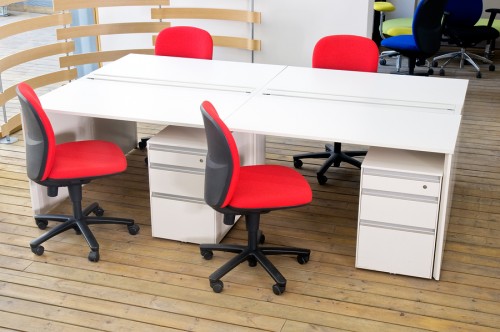Part of the problem with getting work done through teams, as I see it, stems from diminishing collaborative work spaces.
More than 70 percent of today’s employees work in open office spaces. The amount of space per employee shrank from 500 square feet in the 1970s to 200 square feet in 2010. The average work space per person today is a claustrophobia-inducing 176 square feet.
There are ways to create office settings that are more conducive to getting work done. People should be free to circulate and interact, yet also free to disappear into their own private work spaces.
Some companies are starting to understand the value of silence and solitude by creating open plans that offer a mix of solo work spaces, quiet zones and casual meeting areas. Flextime and work-from-home schedules offer other ways to encourage focus and concentration.
Open office spaces encourage interaction, for sure. If you’re an extrovert, that’s probably helpful. But not if you’re an introvert. In the work I do coaching, I hear complaints about this.
Excessive stimulation seems to impede learning, as do interruptions. The simple act of being interrupted is one of the greatest barriers to productivity.
Better Ways to Work in Teams
Never doubt that a small group of thoughtful, committed citizens can change the world. Indeed, it is the only thing that ever has. ~ Anthropologist Margaret Mead
Teams are not inherently bad, but they can be refined and adjusted to provide better results. The way forward is not to stop collaborating, but to do it better.
- To guard against groupthink, use checklists or ask certain team members to play devil’s advocates.
- If you need to stimulate creativity, ask people to come up with ideas alone before sharing them with the team. If you seek the wisdom of the crowd, gather it electronically or in writing first.
- Face-to-face contact is important because it builds trust, but group dynamics contain unavoidable impediments to creative thinking. Don’t mistake assertiveness or eloquence for good ideas.
What are your thoughts about ways to work in teams and still get a lot of creative work done? I’d love to hear your opinion on this. You can reach me here or on LinkedIn.

Did You Enjoy This Article?
Join thousands of other smart business owners like yourself & get our Proffittable Times newsletter.
It's filled with actionable content you can apply immediately.
Sign up now to get started!
– Coach Nancy










